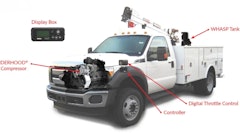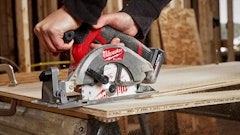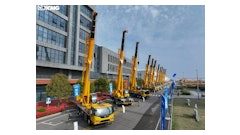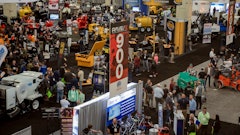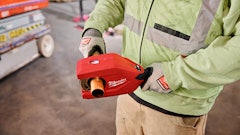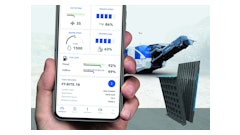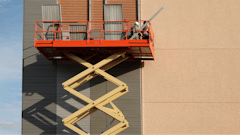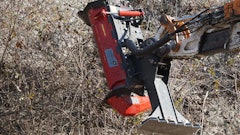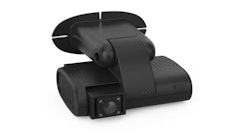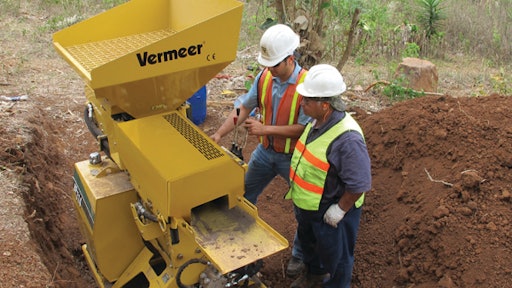
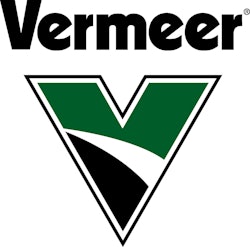
Vermeer Corporation has always taken pride in finding a better way, and a recent product introduction has the potential to help address the critical world housing shortage. The Vermeer BP714 Block Press produces compressed earth blocks made from soil with a marginal amount of cement — in some instances 75 percent less than a cement block — yet has similar strength as a cement block. Compressed earth blocks can be used to build a variety of structures, including homes, schools, churches, clinics and stores.
“A third of the world today lives in some sort of house that’s built with dirt, and building with dirt is very natural to many cultures, so it’s very accepted,” said Terry Butler, operations manager for Vermeer Corporation and the Vermeer Charitable Foundation. “We saw a need to provide a solution for a global problem, and the Vermeer Block Press will play a role in providing an affordable solution.”
A Vermeer BP714 block press is used to create a 4-inch-high by 14-inch-long by 7-inch-wide (10.2 cm x 35.6 cm x 17.8 cm) compressed earthen block. Twenty-five gallons (95 L) of clay-based sandy soil is mixed with 2 gallons (7.6 L) of Portland cement, and then 1.5 gallons (5.7 L) of water is added to the dry mix. The block press uses dual compression to form the block. Hydraulic rams first compress the block to provide the uniform dimension as mentioned above. Second, they create cavities that allow areas for seismic reinforcement, roof tie-downs, electrical conduit and plumbing. The second compression provides for uniform density of each block.
“We are able to maintain consistency in dimensions of the compressed earthen blocks, which is critical when you’re trying to compete against the cement block market,” said Butler. “The Vermeer blocks feature a unique interlocking design that does not require any mortar between the blocks when they are stacked, so the construction process may be faster than the conventional masonry method.”
The blocks need to be cured following the production process. Generally, 50 blocks are stacked onto a pallet and wrapped with plastic and allowed to cure and stabilize dimensionally for seven days. Once the cure process is complete, the blocks are ready for building, and after 28 days they become hard as a brick. No firing of the block is required which is an advantage over traditional brick production.
Designed for use in the most remote parts of the globe, the BP714 is built with simple yet reliable hydraulic controls. It does not have any complicated electronic circuitry and the 12.6 hp (9.4 kW) diesel engine features a manual start. The machine can produce three blocks per minute, and provided there is a continuous supply of raw material, the BP714 will produce about 180 blocks per hour.
According to Butler, the Vermeer Charitable Foundation is the impetus behind this whole project.
“We have four projects going on around the world right now, in El Salvador, Haiti, Venezuela and South Africa,” said Butler. “The machine being used in Johannesburg, South Africa, is completing the second phase of an orphan care center where over 5000 orphans per day are being fed and cared for by the Blessman Ministry. Soil is an environmentally friendly, sustainable way to build needed housing and other structures worldwide.”
The Vermeer Charitable Foundation has also supported the creation of a separate entity called Dwell Earth. Dwell Earth provides technical support, such as selecting the right ingredients, developing the appropriate block mixture, block production, building design and building project management in the field. Dwell Earth will also provide access to a full line of ancillary equipment, including conveyors, mixers, trailers and screeners to help make a portable block plant.
To learn more about the Vermeer Block Press, watch this video, visit www.dwellearth.com or contact your local Vermeer dealer. For more information on Vermeer products and services, visit the company’s website at www.vermeer.com or email Vermeer at [email protected].




